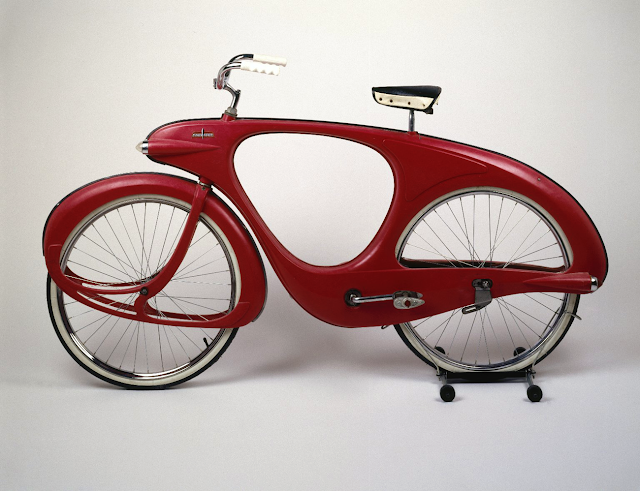
Advancing the shield – interior of the tunnel. The tunnel was for Beach’s pneumatic subway. The idea of an underground transportation system was, as far as documentation can show, was by British manufacturer George Medhurst in 1805. The British public, on hearing of the idea did not think much of being crowded into tubes underground. 65 years later Alfred Ely Beach pondered how to best transport New York’s booming population from one part of the city to the other. Beach too thought why not send people in tubes underground propelled by pressurized air. Even 65 years after Medhurst the idea seemed fantastical, but Beach’s ideas were logical in terms of what would become the science of pneumatic. Scientific American reviewed an article about an earlier idea by Beach to run such an underground system by means of horse drawn cars and it seemed rational enough to be published in 1849.

Entrance to tunnel, with passenger car coming in. At the 1867 American Institute Fair, held at the Fourteenth Street Armory, Beach showed the public his first model, a laminated wooden tube, six feet in diameter and one hundred feet in length. The scale was meant to show a car that would accommodate ten passengers. This car or tube would be propelled through the tube by means of a fan making two hundred revolutions per minute.

Interior of the passenger car, Frank Leslie’s illustrated newspaper, vol. 29, no. 751 (1870 Feb. 19). I don’t want to get into the varied history and systematic corruption of the Boss Tweed era of New York politics, but suffice it to say that no one did anything in New York at the time without Tweed’s approval and somehow benefiting financially. Tweed thought that Beach’s underground transport system would in fringe on the profits of the above ground rail system in which Tweed had a stake. So Beach and his partners applied for a permit to build a purely mail transport system. If you made the story of what happened after that into a novel everyone would read it as fantasy. Yet Beach actually succeeded in not only building the first section of the new subway, but did so right under Tweed’s City Hall. Well Beach was that battle anyway,
In February, 1870, one year after the surreptitious construction project began, Alfred Ely Beach revealed his secret to a dumbfounded public. Clean, quiet, brightly lit, and smooth riding, its station equipped with a grand piano, chandeliers and a goldfish-stocked fountain, Beach’s subway created a sensation in New York. In it’s first year of operation 400,000 visitors paid twenty-five cents to enjoy the block-long ride between Warren Street and Murray Street, and back again.
Beach responded to the public’s adoration of his brainchild by submitting a bill to the New York State Legislature to extend his line all the way uptown to Central Park–a distance of some five miles. Once again, Boss Tweed was determined to derail Beach’s dream. With New York Governor Hoffman securely in his pocket, Tweed was confident that any measure passed by the legislature allowing Beach to expand construction would be vetoed. He was correct. For two years, Beach tried in vain to propose subway plans that were beyond the grasp of Tweed’s political reach. Finally, in 1873, with Tweed removed from his powerful perch, Beach’s bill gained approval and Governor John A. Dix signed it into law. Beach had won a long fought battle. Little did he know he was about to lose the war.
A stock market crash followed almost immediately on the heels of Beach’s subway bill being written into law. Overnight, interested investors withdrew support and the dream of a New York subway was again deferred. It would be another twenty-five years before talk of a subway was taken seriously. By this time Alfred Ely Beach’s grand accomplishment was looked upon as a passing novelty. The pneumatic tunnel was long forgotten by most New Yorkers when in 1912, sixteen years after Beach’s death, workers excavating a new branch of the Brooklyn-Manhattan Transit happened upon a bricked up tunnel that housed, nearly intact, Alfred Ely Beach’s well-preserved subway car. Time had neatly preserved the transportation artifact. And while the once impressive fountain still remained, it had long since run dry.

Testing the correctness of position of tunnel at night
I can’t help thinking of a modern Boss Tweed, New Jersey governor Chris Christie(R) and his canceling of a new rail tunnel connection to New York. Though Christie probably sees the benefits, he canceled it out of political spite for the Obama administration.
Martin Scorsese’s film Gangs of New York was a fictionalized account of the Boss Tweed era. The new BBC America show Copper is similar in its depiction of the general corruption of the late 1800s. And Hell on Wheels, especially the first two episodes showed how pay for play politics was the norm, not the exception. As corrupt as that era was, from say 1846 to the 1890s, it was just more obvious in some ways than today. The U.S. political system is as corrupt as ever, Coal Miner’s Donor – A Mitt Romney benefactor and his surprisingly generous employees.
IT IS BOTH a pundit’s truism and a mathematical reality that Mitt Romney’s path to the White House runs through Ohio. And that path, in turn, runs through a firm called Murray Energy.
Over the years, CEO Robert Murray has brought in GOP pols from as far away as Alaska, California, and Massachusetts for fund-raisers. In 2010, the year John Boehner became House speaker, the firm’s 3,000 employees and their families were his second-biggest source of funds. (AT&T was in first place, but it has nearly 200,000 employees.) This year, Murray is one of the most important GOP players in one of the most important battleground states in the country. In May, he hosted a $1.7 million fund-raiser for Romney. Employees have given the nominee more than $120,000. In August, Romney used Murray’s Century Mine in the town of Beallsville for a speech attacking Barack Obama as anti-coal. This fall, scenes from that event—several dozen coal-smudged Murray miners standing behind the candidate in a tableau framed by a giant American flag and a COAL COUNTRY STANDS WITH MITT placard—have shown up in a Romney ad.
[ ]….The accounts of two sources who have worked in managerial positions at the firm, and a review of letters and memos to Murray employees, suggest that coercion may also explain Murray staffers’ financial support for Romney. Murray, it turns out, has for years pressured salaried employees to give to the Murray Energy political action committee (PAC) and to Republican candidates chosen by the company. Internal documents show that company officials track who is and is not giving. The sources say that those who do not give are at risk of being demoted or missing out on bonuses, claims Murray denies.
Murray is guilty of negligent homicide in the deaths of 9 miners. Murray lied about the safety violations, cost cutting measures, that caused the deaths so what are a few lies about coercing employees to pay for a radical conservative agenda they do not believe in. As Romney Repeats Trade Message, Bain Maintains China Ties
The tale of Asimco Technologies, an auto parts manufacturer whose plants dot eastern China, would seem to underscore Mitt Romney’s campaign-trail complaint that China’s manufacturing juggernaut is costing America jobs.
Nine years ago, the company bought two camshaft factories that employed about 500 people in Michigan. By 2007 both were shut down. Now Asimco manufactures the same components in China on government-donated land in a coastal region that China has designated an export base, where companies are eligible for the sort of subsidies Mr. Romney says create an unfair trade imbalance.
But there is a twist to the Asimco story that would not fit neatly into a Romney stump speech: Since 2010, it has been owned by Bain Capital, the private equity firm founded by Mr. Romney, who has as much as $2.25 million invested in three Bain funds with large stakes in Asimco and at least seven other Chinese businesses, according to his 2012 candidate financial disclosure and other documents.
That and other China-related holdings by Bain funds in which Mr. Romney has invested are a reminder of how he inhabits two worlds that at times have come into conflict during his campaign for the White House.
As a candidate, Mr. Romney uses China as a punching bag. He accuses Beijing of unfairly subsidizing Chinese exports, artificially holding down the value of its currency to keep exports cheap, stealing American technology and hacking into corporate and government computers.
The only difference between the corruption of the 1800s and now is that it now it pays better. Romney and his conservative supporters claim they are the pinnacle, the standard for patriotism. If that is true it means that to be patriot in America means to be a morally corrupt monster. Mitt Romney Lined His Pockets Pimping Big Tobacco In Russia
Bain & Company were corporate consultants hired to assist companies in marketing, expanding, and streamlining their operations. After Mitt Romney had successfully launched Bain Capital and made a lot of money, he was asked to come back and turn around Bain & Company. It could be argued that Bain & Co was languishing because of the activities of Bain Capital, which was leveraging and consolidating companies that Bain & Co might otherwise have provided consulting services to. Whatever the reason, Romney agreed to come back and try to turn it around.
It would seem that one of the drivers of Bain & Co’s turnaround was to inject Big Tobacco companies into Russia’s emerging markets. From the article:
The Soviet Union’s downfall meant rich rewards for any company able to move quickly, and the timing was right for U.S. and British tobacco companies eager to control the cigarette market. Under pressure at home for marketing an addictive and deadly product, domestic sales were shrinking. It was a dilemma Bain and Romney knew well, having worked extensively on behalf of Philip Morris in the U.S. beginning in 1990. In 1992, Bain approached British American Tobacco — the international conglomerate behind Kool, Lucky Strike, Pall Mall and Benson & Hedges — offering a lucrative partnership in Russia. It worked.
Worse yet, taxpayer dollars helped launch the effort.
Bain was in the middle of all of this, putting to work the same skills it had sharpened in the U.S. — using taxpayer money to help it gain footholds in Russia. In March 1993, the American government gave Bain & Co. a $3.9 million contract to advise Boris Yeltsin’s administration on the privatization of the Russian economy, according records detailing the arrangement uncovered by The Huffington Post. Romney’s consultants helped foreign firms and aspiring oligarchs decide how to corral Russia’s riches — including writing an official manual that outlined how best to navigate the process. At the same time, Bain leveraged its contacts with senior Russian officials to arrange sweetheart deals for its tobacco clients.
The Russian government was an incredibly corrupt institution from the beginning. The fall of the Soviet Union gave rise to a robust black market system. For all of the high talk about Reagan and the fall of communism in those days, Russia’s “democracy” was little more than the oligarchy opening the door to receive some of the riches of the west, and Romney facilitated that.
Gangs of New York, Copper and Hell on Wheels are supposed to be entertaining historical dramas, maybe with a little message about behaving better. But in comparison to the deep tangled web of corruption we have today, those shows are almost light hearted fairy tales.

early autumn wallpaper









